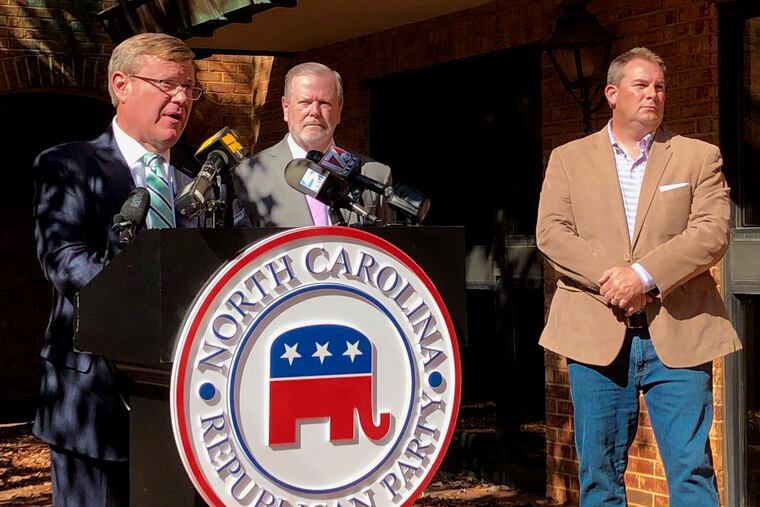The independent state legislature theory is a threat to free and fair elections
Here's what today's U.S. Supreme Court hearings could mean for democracy in Pennsylvania.

For a dozen years, from 1993 to 2005, I proudly represented the people of Bucks County as a Republican congressman in the U.S. House of Representatives. In this last election cycle, however, I took the bold step of endorsing our Gov.-elect Josh Shapiro, who ran on a different party line than my own, because I believed the Republican candidate, Doug Mastriano, would be a threat to our democracy. If elected governor, Mastriano would have worked to manipulate free and fair elections, just as he had in the state Senate.
Thankfully, Shapiro won, but unfortunately, we cannot rest on our laurels. That is because Wednesday, the U.S. Supreme Court is hearing oral arguments in the case of Moore v. Harper, the outcome of which could be just as damaging for Pennsylvania voters as a Mastriano administration. Indeed, distinguished conservative jurist and counsel in the case, J. Michael Luttig, said that Moore v. Harper is the “single-most important case on American democracy, and for American democracy, in the nation’s history.”
So what is at the heart of this potentially catastrophic case? The widely debunked “independent state legislature theory” claims that state legislatures have near-unchecked power to regulate federal elections in their state. In practice, the independent state legislature theory would cut out governors and state courts almost entirely from providing critical checks and balances of the state legislature.
In fact, the independent state legislature theory made its way into consideration by the U.S. Supreme Court this session because the North Carolina legislature gerrymandered the lines for its new congressional maps following the 2020 Census. Voters in the state contested the new map, saying it violated the North Carolina Constitution’s free elections clause.
In February, the North Carolina Supreme Court struck down the map, calling it an “egregious and intentional partisan gerrymander … designed to enhance Republican performance, and thereby give a greater voice to those voters than to any others.” In response, Republican legislators in the North Carolina House of Representatives, led by Speaker Tim Moore, refused to accept the court-ordered maps and appealed to the U.S. Supreme Court.
If the court rules in favor of Moore and the independent state legislature theory, the consequences could go far beyond reinstituting an antidemocratic map in North Carolina and potentially lead to the elimination of a state judicial remedy as an option for voters to fight partisan gerrymandering across the country.
Even more, the independent state legislature theory could cause chaos in elections nationwide, potentially jeopardizing automatic voter registration or mail-in ballot provisions put in place through administrative regulations, ballot initiatives, or state constitutions.
Here in Pennsylvania, the independent state legislature theory could greatly diminish the power of our state courts to provide oversight of the legislature, which has proven critical these last few years in ensuring our elections are free and fair and their results respected. On more than one occasion, our state courts have stepped in to protect voters from the legislature’s gerrymandered maps and other attempts to restrict the right to vote and the voice of voters.
With Moore in place, our citizens would no longer have recourse to the other branches of the commonwealth’s government, leaving voters at risk from partisan — and, in many cases, antidemocratic — state legislators.
Those of us who viewed Mastriano’s candidacy as a threat to the rights of Pennsylvania’s voters to have their ballots counted and election results respected were relieved when Shapiro prevailed.
But threats to the democracy forged by the founders persist. We must maintain vigilance, and the U.S. Supreme Court must reject the independent state legislature theory and rule against Moore v. Harper.
Jim Greenwood represented Bucks County in the U.S. House of Representatives as a Republican from 1993 to 2005.